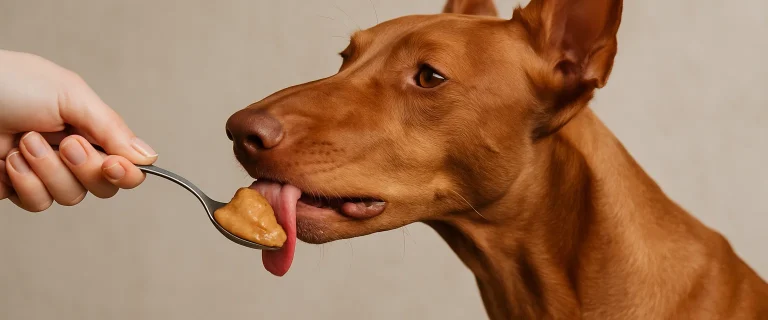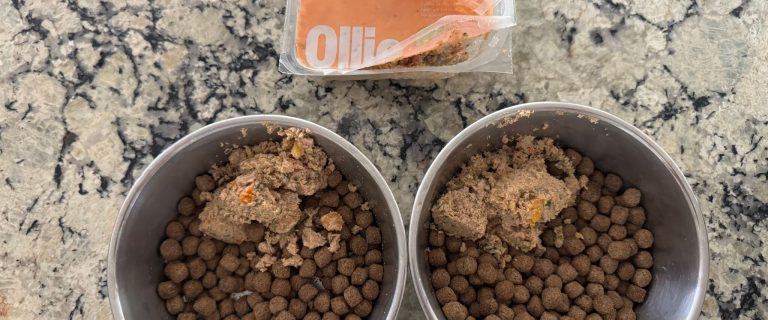If you’re like most dog parents, you’ve probably caught your furry friend staring longingly at your breakfast plate, especially when there’s bacon involved. But before you toss your dog a piece of that crispy, salty goodness, you might be wondering, Can dogs eat bacon?
The short answer is yes—but with a lot of caution. Bacon isn’t exactly the healthiest snack for dogs, and there are some serious risks to consider. Let’s break down the benefits, risks, and best practices so you can make an informed decision.
Can Dogs Eat Bacon?
Technically, yes, dogs can eat bacon in very small amounts. It’s not toxic to them like chocolate or onions, but that doesn’t mean it’s a free-for-all snack. Bacon is high in fat, salt, and additives, which can wreak havoc on your dog’s health if eaten in excess.
Think of bacon as a once-in-a-while indulgence, not a staple in your dog’s diet. A bite-sized piece here and there probably won’t hurt but feeding it regularly or in large quantities is a no-go.
The Risks of Feeding Your Dog Bacon
While your dog might drool at the smell of bacon, there are some risks involved that you need to be aware of:
1. High Fat Content
Bacon is loaded with fat—something your dog’s body doesn’t process as efficiently as yours. Consuming fatty foods like bacon can lead to pancreatitis, a serious and painful condition where the pancreas becomes inflamed. Symptoms include vomiting, diarrhea, loss of appetite, and lethargy.
2. High Salt Levels
Dogs don’t need much salt in their diets, and bacon is packed with it. Too much sodium can cause dehydration and, in severe cases, salt poisoning. Symptoms of salt poisoning include excessive thirst, vomiting, diarrhea, tremors, and even seizures.
3. Preservatives and Additives
Store-bought bacon often contains preservatives like nitrates and nitrites, which can be harmful to dogs over time. These additives are linked to gastrointestinal issues and even cancer in both humans and pets.
4. Obesity and Related Health Issues
Bacon is calorie-dense, meaning those extra bites can quickly add up. Over time, regular indulgences can contribute to obesity, which puts your dog at risk for joint issues, heart problems, and diabetes.
5. Choking Hazard
Bacon might seem harmless, but its chewy or crispy texture can pose a choking risk, especially for small dogs. Pieces can also get stuck in your dog’s throat or digestive tract.
Are There Any Benefits to Bacon?
While bacon is far from a superfood, there are a few potential perks to offering it in moderation:
- High-Value Treat
If your dog is food-motivated, bacon can be a high-value reward for training or special occasions. Just remember to cut it into small, bite-sized pieces. - Rich in Protein
Bacon does contain protein, which is essential for your dog’s muscles and overall health. However, there are far healthier (and less fatty) sources of protein, like chicken or turkey. - Flavor Booster
A tiny crumble of bacon can be used as a dog food topper to entice picky eaters to finish their meals. Sprinkle a small amount over their regular food for a burst of flavor without overloading them on fat and salt.

How Can Dogs Safely Eat Bacon?
If you decide to share a bit of bacon with your dog, follow these tips to minimize the risks:
1. Cook It Thoroughly
Always cook bacon thoroughly to kill any harmful bacteria or parasites. Avoid raw or undercooked bacon, which can carry pathogens like Salmonella.
2. Limit the Quantity
Keep portions small—think one or two bite-sized pieces for a medium-sized dog. For tiny dogs, even a single piece might be too much.
3. Avoid Grease
Drain the excess grease before giving bacon to your dog. Better yet, pat it with a paper towel to remove as much fat as possible.
4. Skip the Seasonings
Flavored or seasoned bacon (like maple or peppered varieties) is a no-go. Extra spices, especially garlic or onion powder, can be toxic to dogs.
5. Offer It Occasionally
Reserve bacon for rare treats, not a daily snack. Think of it as a “special occasion” food, like a birthday or holiday.
Healthier Alternatives to Bacon
If you’re looking for a safe, dog-friendly way to treat your pup, there are plenty of healthier options that deliver flavor without the risks:
- Turkey Bacon: Lower in fat and salt, but still offer in moderation.
- Dehydrated Meat Treats: Many pet stores sell single-ingredient dehydrated chicken, beef, or fish.
- Homemade Treats: Make your own dog treats with lean meats and dog-safe ingredients.
What to Do If Your Dog Eats Too Much Bacon
Accidents happen—maybe your dog swiped a few strips off the counter, or someone in your family gave them a little too much. If your dog eats too much bacon, monitor them closely for signs of distress, including:
- Vomiting
- Diarrhea
- Excessive thirst or urination
- Lethargy
- Loss of appetite
If you notice any of these symptoms or suspect pancreatitis, contact your vet immediately.
A Better Way to Treat Your Dog
While the occasional bite of bacon might not harm your pup, there are far healthier and safer treats out there. Stick to dog-specific treats or lean, unseasoned meats to reward your furry friend without the risk of upsetting their stomach—or worse, their overall health.
At the end of the day, your dog doesn’t need bacon to be happy. What they really want is your love, attention, and maybe a game of fetch. So next time those puppy eyes are locked on your plate, remember: a healthy pup is a happy pup!
Have you ever shared bacon with your dog? Let us know how they reacted in the comments!
Author
-

Hi there! I'm Nicole, the editor-in-chief and one of the writers here at DogVills. I've been a dog owner for most of my adult life and a dog lover for much longer than that. I grew up with a wonderful German Shepherd named Jake, who I loved SO much that I named my son after him. When I'm not writing for DogVills or my own site, Pretty Opinionated, I love spending time with my teenager (when he actually lets me) and my Pharaoh Hound, Freya. I'm also an avid reader AND a total TV fanatic.
View all posts



